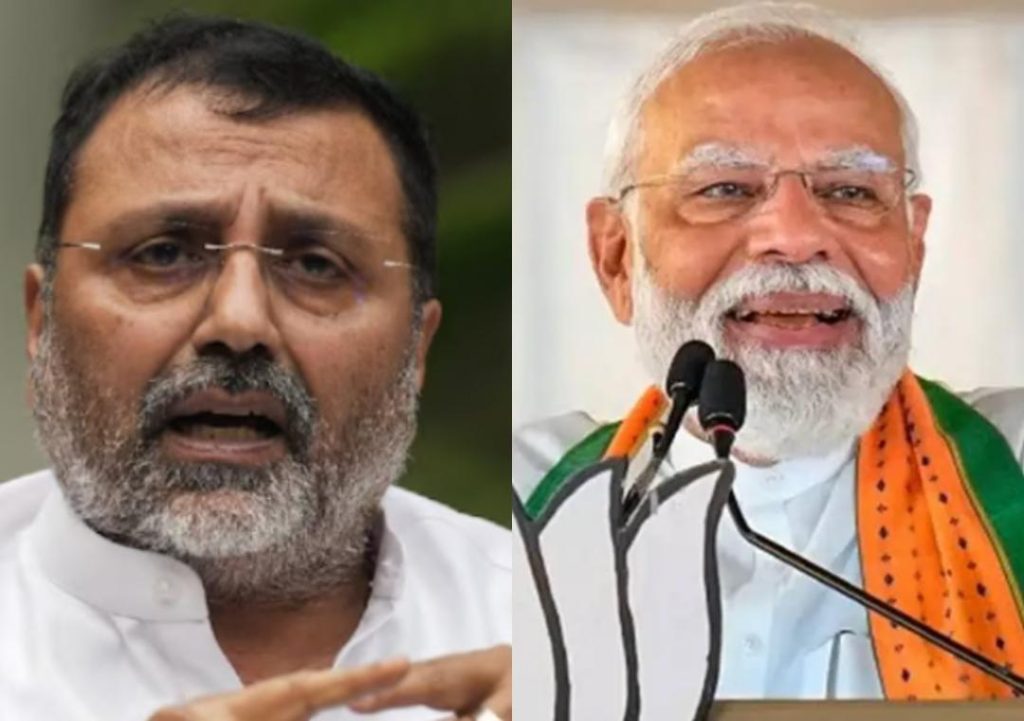
BJP won’t win even 150 seats if PM Modi is not our leader: Dubey
The Indian general elections are just around the corner, and the political landscape is heating up. Various leaders and parties are making bold statements and predictions about their chances of winning. Amidst this frenzy, a recent statement by BJP leader Nishikant Dubey has sent shockwaves across the political spectrum. Dubey, a prominent leader from the saffron party, has boldly stated that the BJP will not win even 150 seats in the upcoming Lok Sabha polls if Prime Minister Narendra Modi is not at the helm.
Dubey’s statement is a stark reminder of the enormous influence and charisma that PM Modi holds over the BJP and its supporters. The party’s performance in the 2019 elections, where it won a majority of seats, was largely attributed to the PM’s popularity and leadership. Dubey’s claim that the party needs PM Modi, but the PM doesn’t need the BJP, highlights the immense power and authority that the Prime Minister wields within the party.
The statement has sparked a heated debate, with many questioning the implications of such a strong personality cult around PM Modi. Is the BJP a party or a personality-driven entity? Should PM Modi’s leadership be the sole determining factor in the party’s success? These questions are pertinent, especially given the party’s track record of relying heavily on the Prime Minister’s charisma to win elections.
Dubey’s statement is not without merit. The BJP’s performance in state elections has been lackluster in recent years, with the party struggling to make an impact in states like Maharashtra, Haryana, and Jharkhand. In these elections, the party’s candidates and leaders were often overshadowed by the Prime Minister’s presence, leading to disappointing results.
Furthermore, the BJP’s reliance on PM Modi’s popularity has led to a situation where the party’s leaders are often perceived as mere extensions of the Prime Minister’s vision and policies. This has resulted in a lack of distinctiveness and individuality among party leaders, making it difficult for the party to build a strong bench strength.
However, it’s also important to note that PM Modi’s leadership has been instrumental in the party’s success in the past. His vision for a strong and prosperous India has resonated with a significant section of the electorate, and his policies have been credited with improving the country’s economic and social landscape.
In light of this, Dubey’s statement can be seen as a reflection of the party’s dependence on the Prime Minister’s leadership. The party’s performance in the upcoming elections will largely depend on PM Modi’s ability to connect with voters and inspire them to turn out in large numbers.
Dubey’s statement has also sparked speculation about the party’s leadership structure and succession planning. The BJP has traditionally been a party that has been led by a strong and charismatic leader, with PM Modi being the latest in this line. However, the party’s leadership structure is not very clear, and there is growing concern about who will lead the party after PM Modi’s tenure comes to an end.
In conclusion, Dubey’s statement highlights the immense power and influence that PM Modi holds over the BJP. While the party’s performance in the upcoming elections will depend on various factors, it’s clear that PM Modi’s leadership will play a crucial role. The party’s ability to adapt to changing circumstances and build a strong bench strength will be crucial in determining its future success.
As we approach the 2024 general elections, it will be interesting to see how the BJP navigates the challenges posed by Dubey’s statement. Will the party be able to break free from its reliance on PM Modi’s leadership and build a strong and distinct identity? Only time will tell.
Source:






